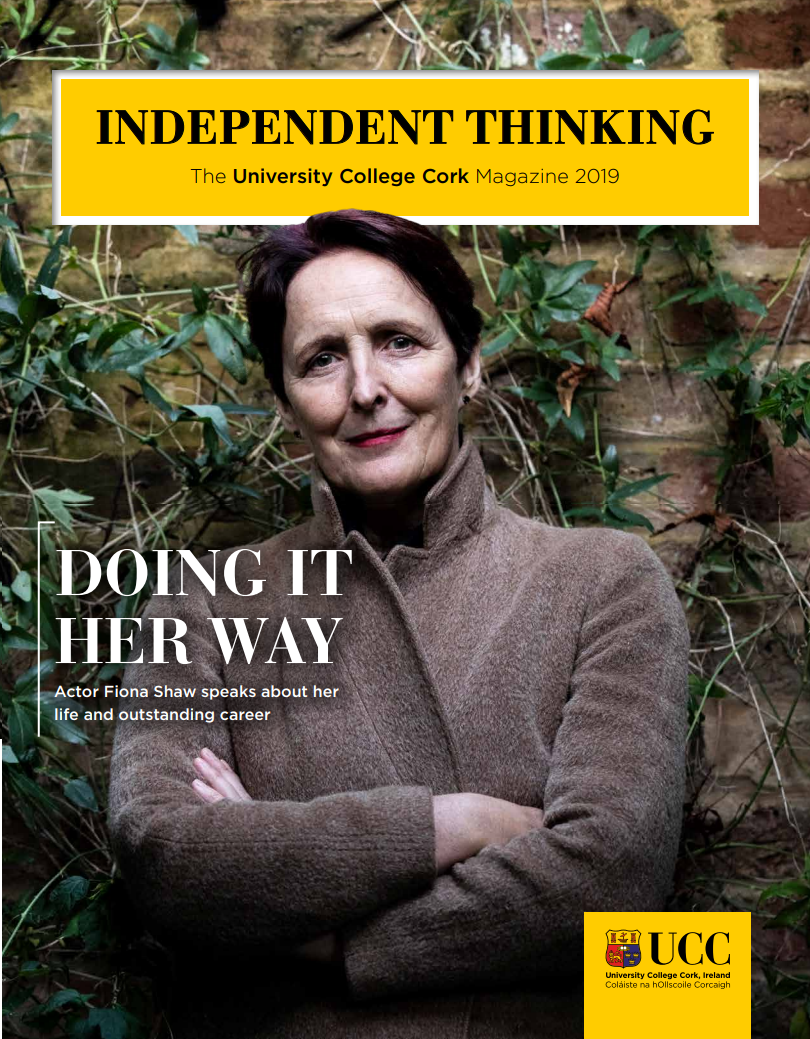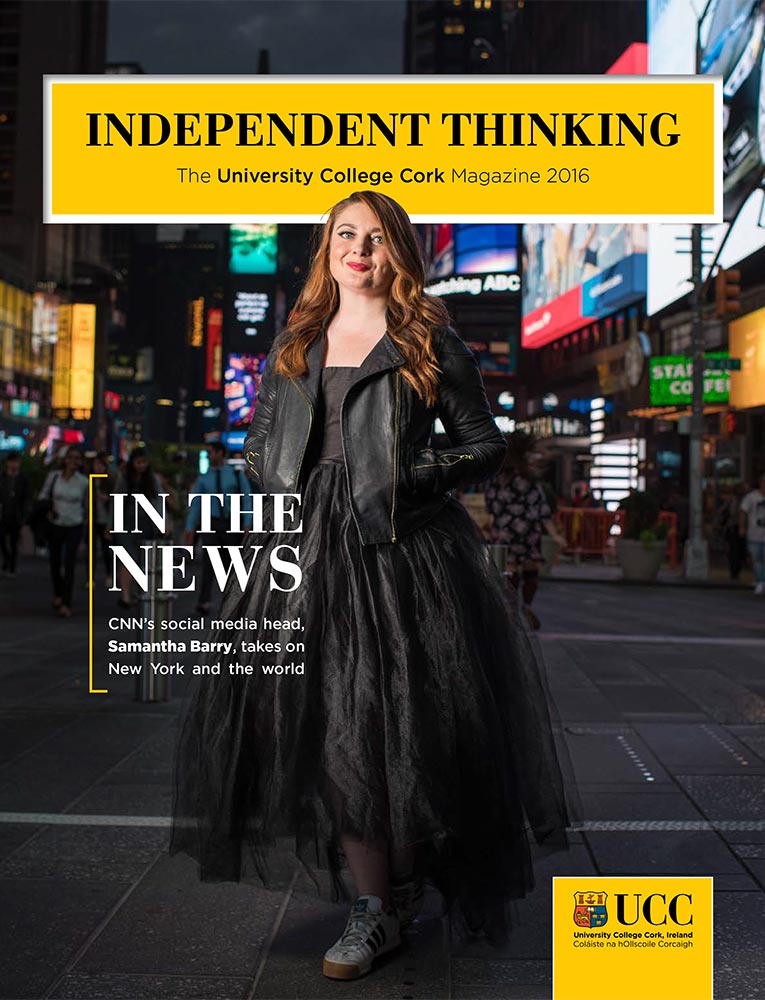John A. Murphy: 1927–2022
The news of Professor Emeritus and University Historian John A. Murphy’s recent death gave the university pause to reflect on the life and legacy of a man who was synonymous with ‘the College’, as his friend and former colleague Professor Tom Dunne writes.
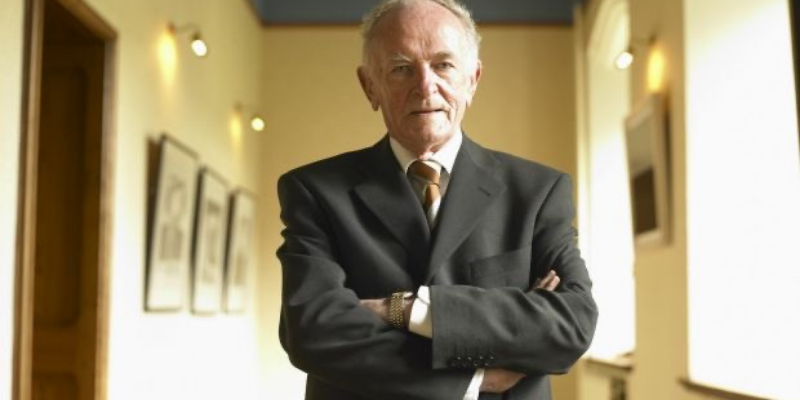
As Queen Elizabeth was about to finish her tour of the high-tech Tyndall Institute in 2011, she was introduced to the Professor Emeritus of Irish History, John A. Murphy, who, in turn, introduced her to the statue of her great-great grandmother, Queen Victoria. It had been erected over the Aula when UCC, then ‘the Queen’s College’, opened in 1849, but was taken down in the nationalistic fervour of the 1930s, and buried in the President’s Garden, to prevent it doing any further harm. John A. had led the campaign to reverse this attempt to bury the past, and as part of the university’s 150th anniversary the statue was put on public display. He told this ‘symbolic story’ to the current queen with characteristic clarity and seeming artlessness, and remarked later that the reception of the Queen in Cork ‘said a lot for our people’s development’. He himself had played a major role in the transformation of public opinion that it represented, through a more inclusive and complex understanding of the Irish past. The fact that he came from a traditional nationalist background and understood it thoroughly was crucial in this.
His upbringing in Macroom was, as he put it, ‘in the Faith and Fatherland tradition’, but it was also a house of song, ranging widely from sean-nós to Moore’s Melodies, to Victorian music hall and light opera, reflecting the hybridity of Irish culture. He was to transcend his political inheritance, but he retained and celebrated this diverse musical tradition all his life.
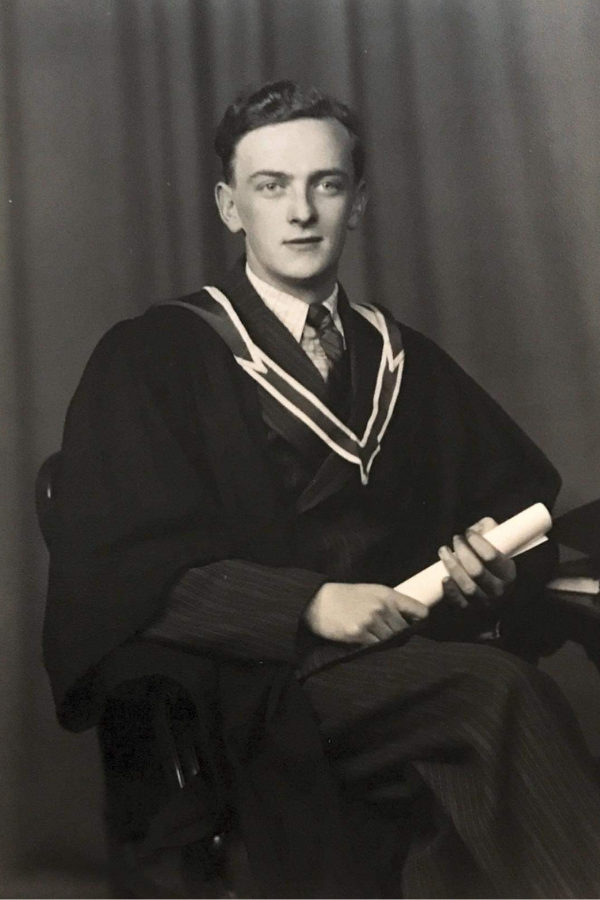
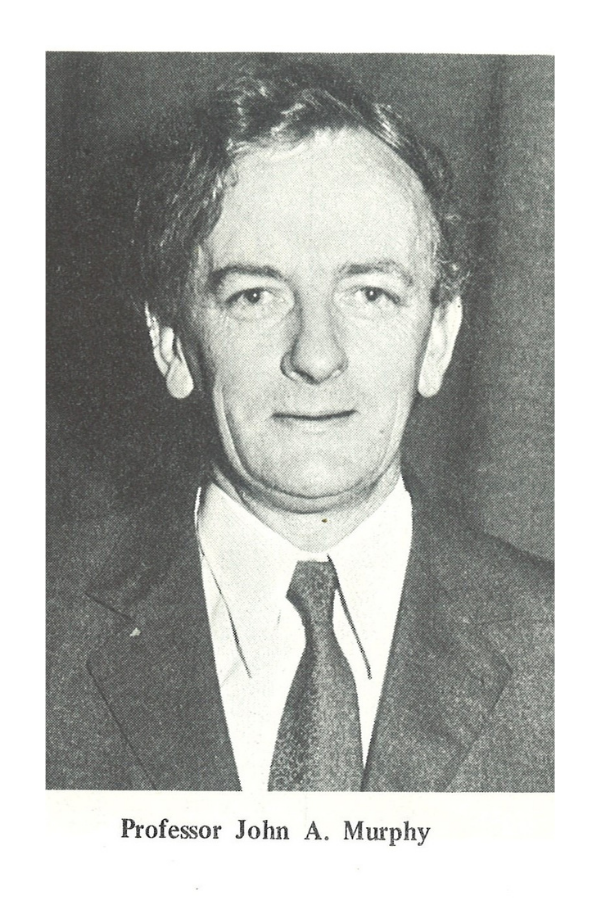
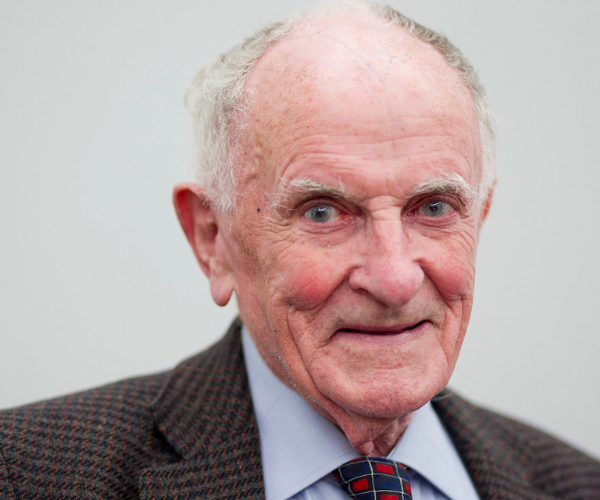 John A. in 2011. (Photo: Tomás Tyner, UCC)
John A. in 2011. (Photo: Tomás Tyner, UCC)
UCC’s singular honouring of John A. (he had previously been proclaimed ‘University Historian’ for life by the governing body) was, above all, a response to his extraordinary devotion to ‘the College’ and his contribution to its sense of identity and community, in a series of books beginning with the widely admired The College: A History of Queen's/University College Cork 1845–1995 (1995), which was followed by three further books on UCC. He was for many years a very active member of its governing body, and represented UCC on the Senate of the National University.
While he published some important articles on his early research area of seventeenth-century Ireland, his greatest contribution as a historian was as a communicator of modern historical research to the wider public. He remains best known for his hugely influential Ireland in the Twentieth Century (1975, 1989), but his contributions as a public intellectual were far more extensive, beginning with his deep involvement over many years with the Cork Historical and Archaeological Society and its excellent journal, through various Thomas Davis radio lectures and many other contributions to the media, especially his very popular weekly columns in the Sunday Independent (1984–2003). His election to the Irish senate (1977–83 and 1987–92) gave him a new platform in his campaign to challenge simplistic nationalist orthodoxies, and he is widely acknowledged to have played a courageous and valuable part in the development of the peace process. This came at the cost of public vilification and personal abuse, and indeed threats, at the height of the violence in Northern Ireland, but his courage, the clarity of his thought, and his empathy still with the traditional nationalism of his youth encouraged many to broaden their understanding of Ireland’s complex past and polarised present.
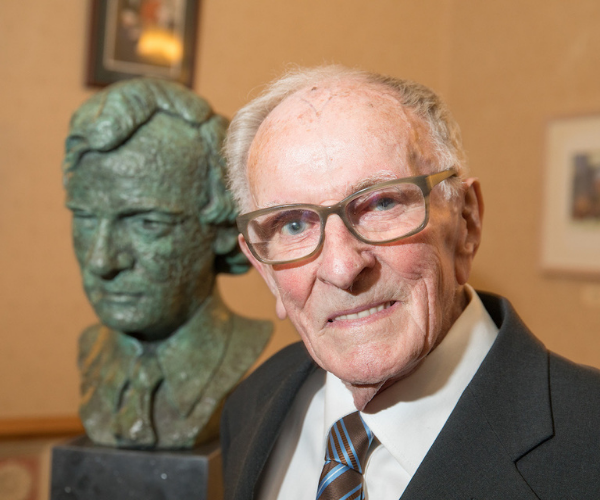 The UCC community gathered in the Aula Maxima, UCC to celebrate John A’s 90th birthday in 2017, where a bronze portrait bust was unveiled in his honour. The bust came from an original plaster model made by his great friend Seamus Murphy, sculptor RHA, in 1973. (Photo: Tomás Tyner, UCC)
The UCC community gathered in the Aula Maxima, UCC to celebrate John A’s 90th birthday in 2017, where a bronze portrait bust was unveiled in his honour. The bust came from an original plaster model made by his great friend Seamus Murphy, sculptor RHA, in 1973. (Photo: Tomás Tyner, UCC)
He was much loved across the UCC community for his wit, his outspokenness and wonderful singing voice, and as the great proponent of the historic mission and proper modus operandi of the university as a community of scholars, comprising both staff and students, rather than a business, as government and business pressures dictate increasingly.
From the medieval song “Gaudeamus igitur”, famous for its articulation of that communal sense, John A. often sang one verse with particular brio, when giving the address at graduation ceremonies:
|
Vivat academia! Vivant professores! Vivat membrum quodlibet; Vivant membra quaelibet; Semper sint in flore! |
Long live the academy! Long live the professors! Long live each student; Long live the whole fraternity; For ever may they flourish! |
It was, perhaps, his greatest contribution to his beloved university, and it pre-occupied him until the end of his life. While we mourn his loss, we also celebrate his remarkable life: ‘Gaudeamus igitur’. Let us therefore rejoice.
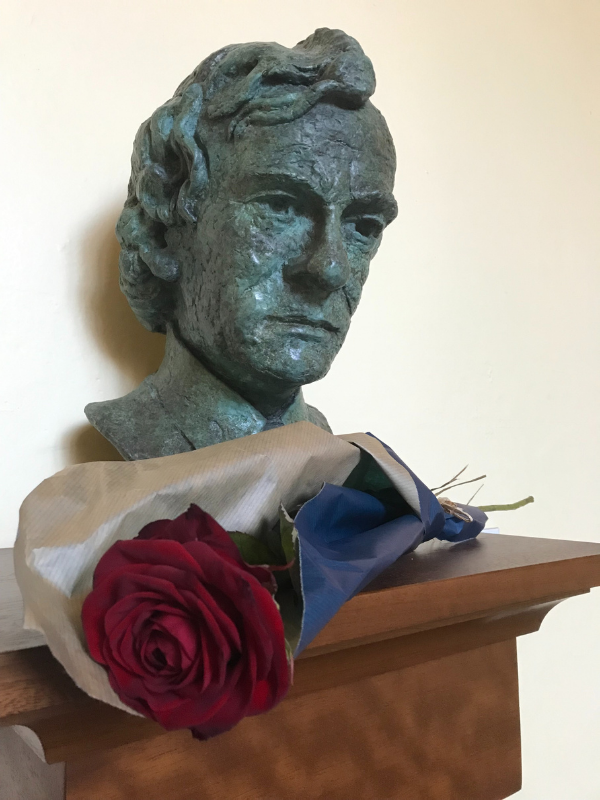
John A. Murphy, 1927-2022, requiescat in pace. (Photo: Nancy Hawkes)

